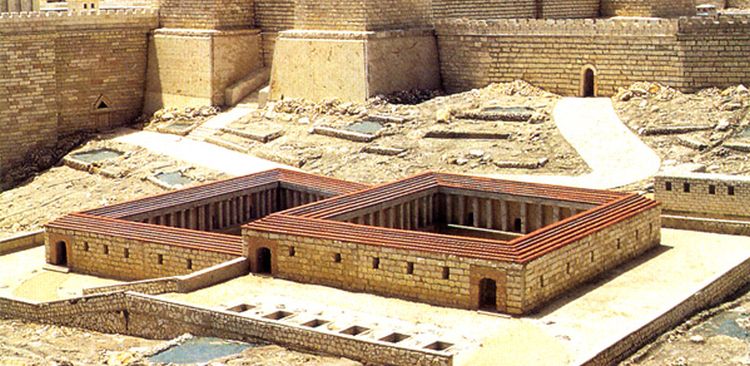Most religions in modern times have made water as their main source of cleansing the mind, the soul and the body. Such immersion in water has been used in the past for things such as chrismation, exorcisms, joining a cult, clan or creed and so on. So, just like Christianity and Islam, Judaism is also one of those religions that use immersion for a lot of purposes including marital purity, preparation of the dead for burial, conversion and a lot more.
Today, many people like to use baptism as a way to remember important events of their lives such as the birth of a newborn baby, as a way to deal with trauma and so on. However, in the past, many Jewish people wanted to be a part of this immersion as a sign to God that they are ready to do anything to be released from their sins.
If you are interested in converting with baptism, here are some things you should know about it.
Mikveh
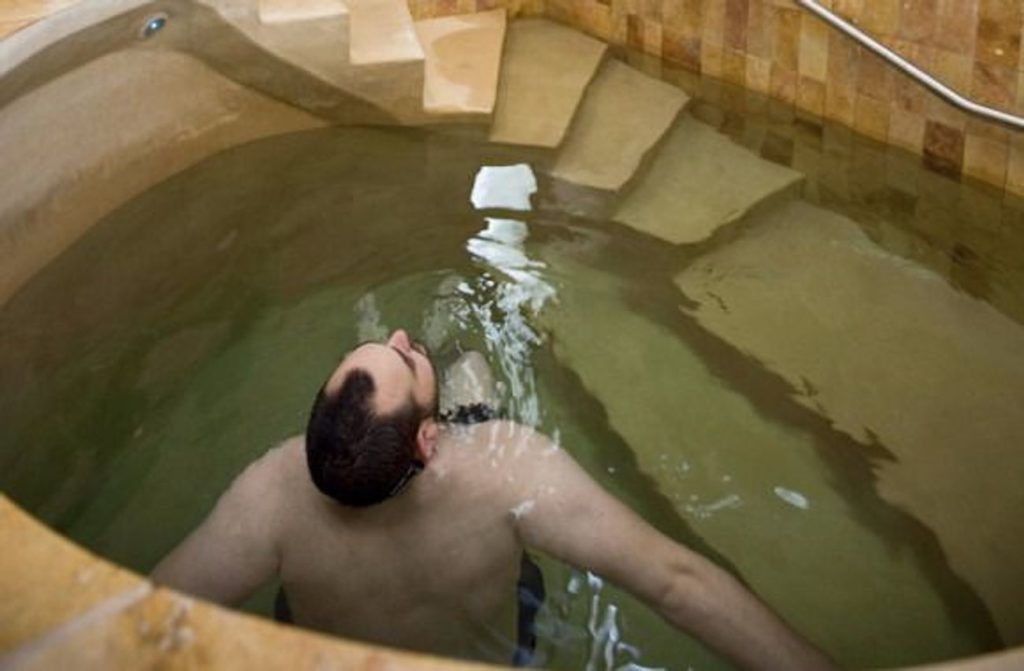
To fully understand the meaning behind the immersion we would first need to understand what exactly the word for ritual bathing really means. A lot of times people have found deeper meanings and explanations just through a word of the Hebrew language. The word mikveh has a very similar root as the word Tikvah which is the Hebrew word for hope which is why many people like to correlate it with waiting or hoping on the return of God.
When you try to simplify the explanation as a description, there are multiple meanings such as hope, something that has been waited, a gathering and so on.
And that is what this baptism is all about. It is about a gathering of Hebrew people that are immersing in the water to bind together and to get closer to God. The closer they get, the easier will the wait be for him to come down. It gives people the belief and confidence that one day he will certainly be present.
Baptism in Jewish Tradition
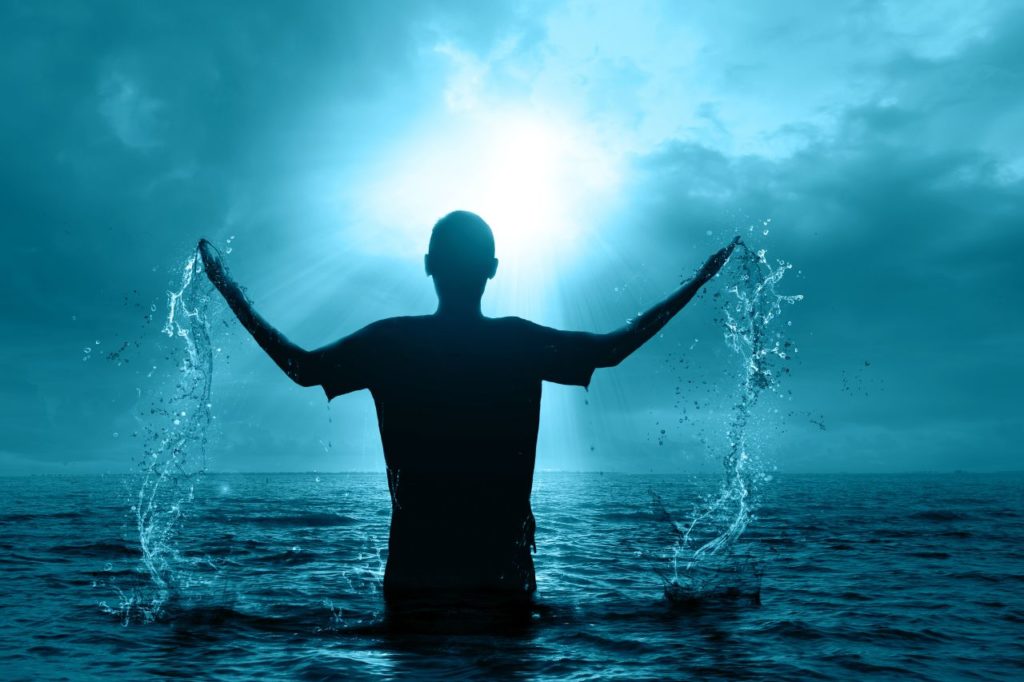
Naturally, not everything that has been said in the Bible is completely followed by the Jewish people. Sometimes, generations have made their own alterations to the “rules” of their customs. There have also been some alterations to ritual washing.
At first, people followed the word of God regarding the ritual washing to the exact letter by building bronze pits or cisterns for full immersion. Later people have started implementing these cisterns in their own homes, reducing the number of times they would have to visit a temple to cleanse.
Many people like to clean the rainwater with various filters and chlorine to ensure that there aren’t any health risks while doing ritual washing. By mixing the rainwater with tap water, the cleansing qualities of the rainwater still remain.
Today, there are private baths that you could visit if you do not have your own basin for cleansing in your home. If you do not have your own mikveh at home, or if you do not have the time to visit a bath, you should at least have a washing cup at home which you can find at this website .
In other words, it is not about following every single step that is directed by the Bible, but it is about respecting the requirement of cleansing.
What does the Bible say about Baptism
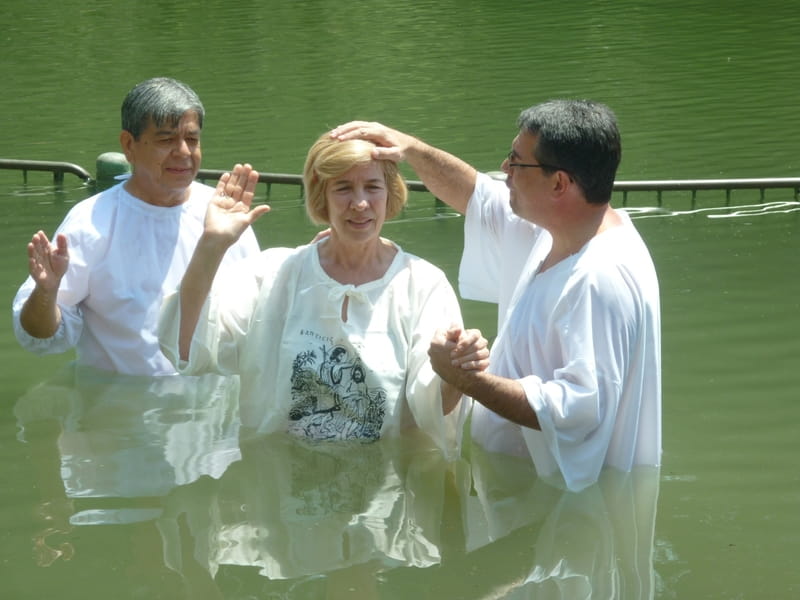
In Exodus 30:17-21, God explains to Moses how to build a basin for washing. He required from it to be bronze and to place it between an altar and the tabernacle. Every time someone would want to enter that tabernacle or before a meal would have to cleanse their hands. God wanted this tradition to last for generations and it did as it is practiced by almost every Jew around this planet.
In the Bible, God talks about the basin of washing, but it is meant for the priests that share his words. They always had to be ritually cleansed when entering the tent to pray or to offer food. While “regular” Israelites who have sinned and disrespected the word of God had to be completely immersed to be cleansed.
When the Tabernacle of Moses was finally built, everyone who wished to enter it would need to be immersed in a mikveh to continue along the path of the temple.
Should you consider Ritual Washing?
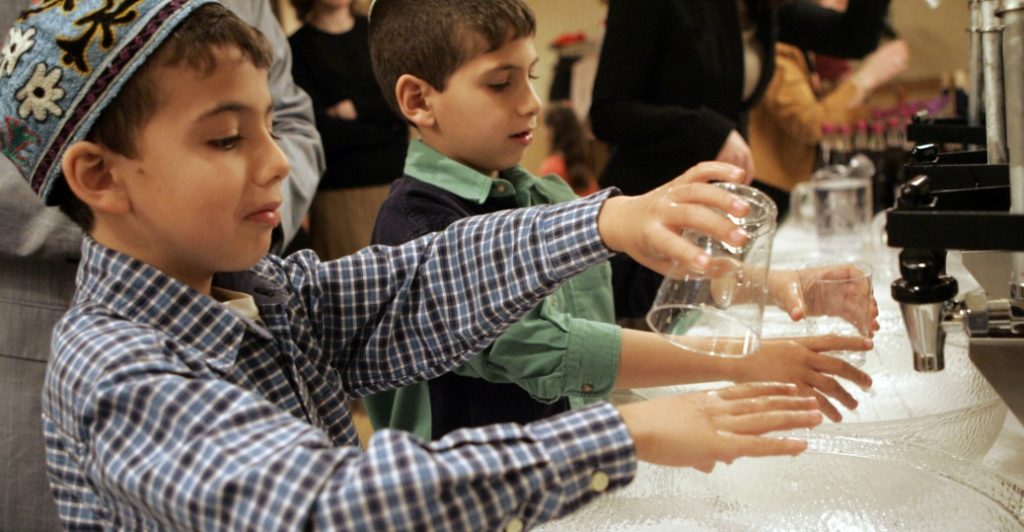
Now that we have gone through the roots of Jewish baptism, you are probably wondering whether you should do it yourself for conversion or for regular cleansing.
The best way to do this is to find a private mikveh service. When you get there, you will probably be greeted and sent to a personal chamber that will be equipped with a shower, a sink, and a toilet. By the laws of Judaism, you will be required to completely wash before you get to the ritual. This is why we recommend you grab your favorite shampoo from home before going there. Take a nice hot shower, clip your nails and don’t forget to brush your teeth. This is done so that there are no barriers between you and the ritual water.
Make sure you give them a call and ask them whether you should bring your own towels, shampoo, and toothbrush.
Naturally, this is a modern experience, so you are not required to rush at all. The preparation room will probably look tasteful and comfortable, so enjoy the time while you are there. If you want to get over with it as soon as possible then take a quick shower.
Once you are fully prepared, you will be invited by the workers there to the mikveh. If you want to, you can ask the assistant there to check whether you have been properly cleaned, but if you do not feel comfortable doing so, you do not have to.
You will take the bathrobe or towel off and slowly get into the water by the stairs. Once you are in, the assistant will slowly push your head under the water to fully immerse your body into the cleansing water. Once you are out you are fully converted or cleansed from any sins.

